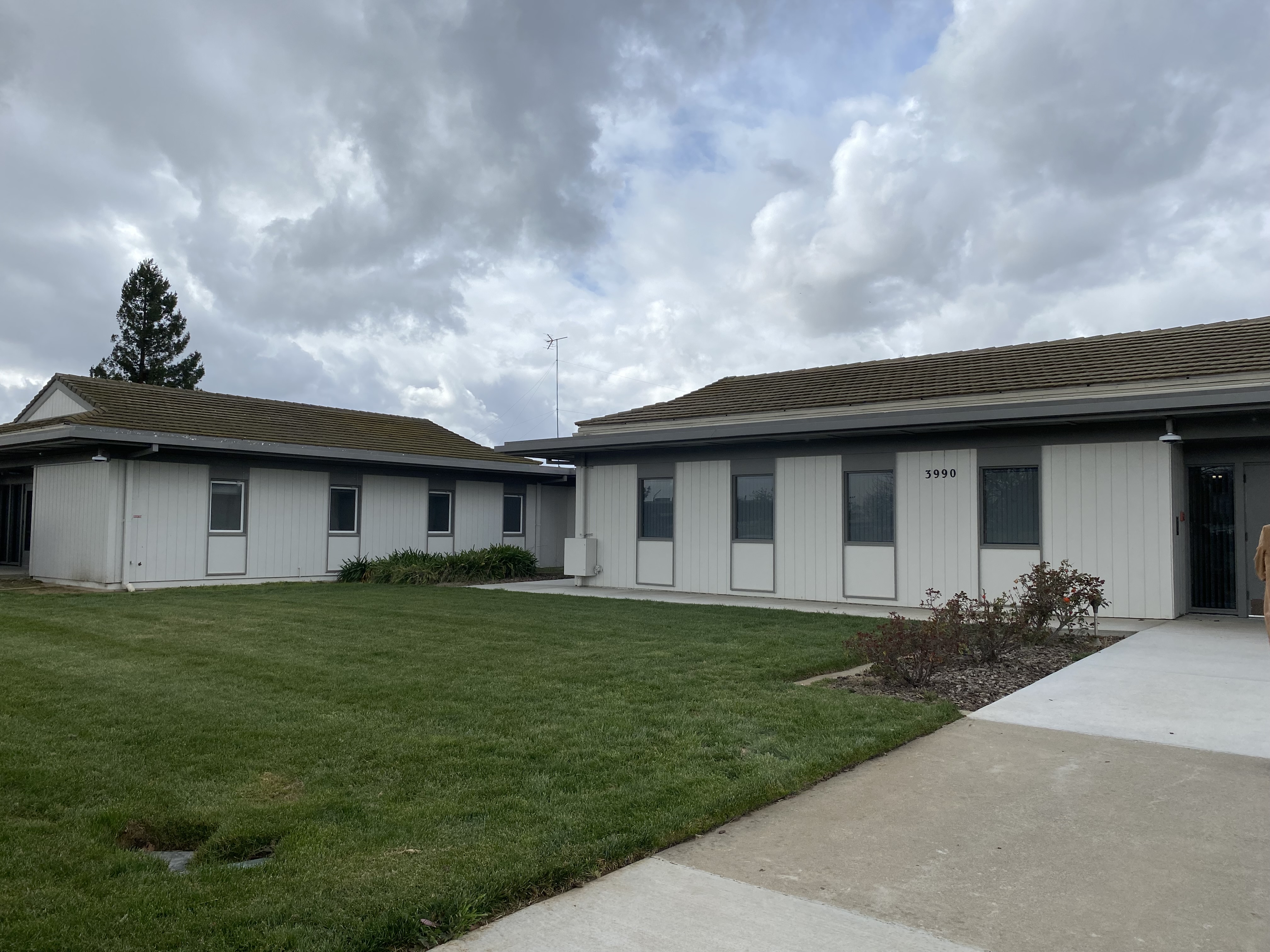At first glance, Nottoli Place might appear like just another building tucked away in Sacramento County. But inside, it's a place where lives are stabilized, hearts are mended and older adults experiencing homelessness or housing instability find not just shelter, but dignity, care and connection. Named after retired Sacramento County District 5 Supervisor Don Nottoli, the shelter provides short-term housing for clients of Adult Protective Services (APS) with round-the-clock support, daily meals and compassionate staff
The shelter is operated by Volunteers of America (VOA), a longtime partner of Sacramento County. Dedicated staff members have helped dozens of older adults at Nottoli Place.
For VOA staff member Juanita, Nottoli Place is more than a job.
“We are bleeding hearts for our seniors here.”
Working alongside her are dedicated and hardworking VOA team members who echo that sentiment.
Chris Stanwick, the Program Director, leads the site with compassion and a hands-on approach. “When people first arrive, they often have this look of complete defeat,” he explained. “But little by little, they start to trust us. They begin to believe in themselves again. That’s when the real transformation begins.”
Chris and the staff build personal connections with each resident. Some arrive with only a pet as their companion, something Nottoli Place accommodates with open arms. Chris emphasized the importance of that bond. “Sometimes those animals have been their only source of love and support. Making space for them is essential.”
For many of the residents, navigating new and advancing technology is a challenge when it comes to finding permanent housing. The VOA staff teach them how to use newer technology to do a variety of things like applying for housing or having medications auto delivered. Nottoli Place also offers essential life skills classes that go over how to budget, manage medications or get to medical appointments—preparing them for life beyond the shelter. The goal is stability and independence, even if it’s a room-and-board situation.
“We want to make sure they’re right before they go on to their next place,” Juanita said. “Even if it’s just one room, it’s going to be their own bed, their own space.”
VOA staff said while Nottoli Place is a temporary place to stay – it is still a home. On average, clients stay at Nottoli Place for about five months. Staff go above and beyond to make sure each person feels welcome during their stay.
“You can’t apply a one-size-fits-all rulebook here,” Chris explained. “We’ve had to get creative—even adapting pet waste tools for seniors who can’t bend down.”
For the VOA staff, the work is deeply personal. Many bring lived experience to their roles, having fallen on hard times themselves and knowing what it is like to need a helping hand. That understanding fuels their daily commitment, even when the job becomes emotionally taxing.
“This work requires wearing your heart on your sleeve,” said VOA staff member Sannette. “You can’t help it. Some days you tell yourself, ‘Don’t cry today.’ But the pain our clients carry is real—and so is the joy when they begin to feel safe again.”
Part of the pain clients experience can be from living alone or experiencing abuse. Many of the older adults referred to the shelter have experienced either financial abuse, physical abuse or neglect.
“You know, a lot of folks have been in isolation, for such a long time. That human connection, I mean, that's what we thrive on as human beings, that contact, that friendship, the feelings of being appreciated and wanted and all of that. And when they get to build those relationships, that's what I think is so awesome,” said Chris.
Residents at Nottoli Place often share that they feel cared for at the shelter. Staff members know not just their names but also take time to learn about their lives. Chris said without that compassion, people would not open up and trust the staff.
“We’re not just here to give people a place to sleep,” said Chris. “We’re here to remind them that someone cares - that they matter. And that healing is possible—even after years of being forgotten.”
